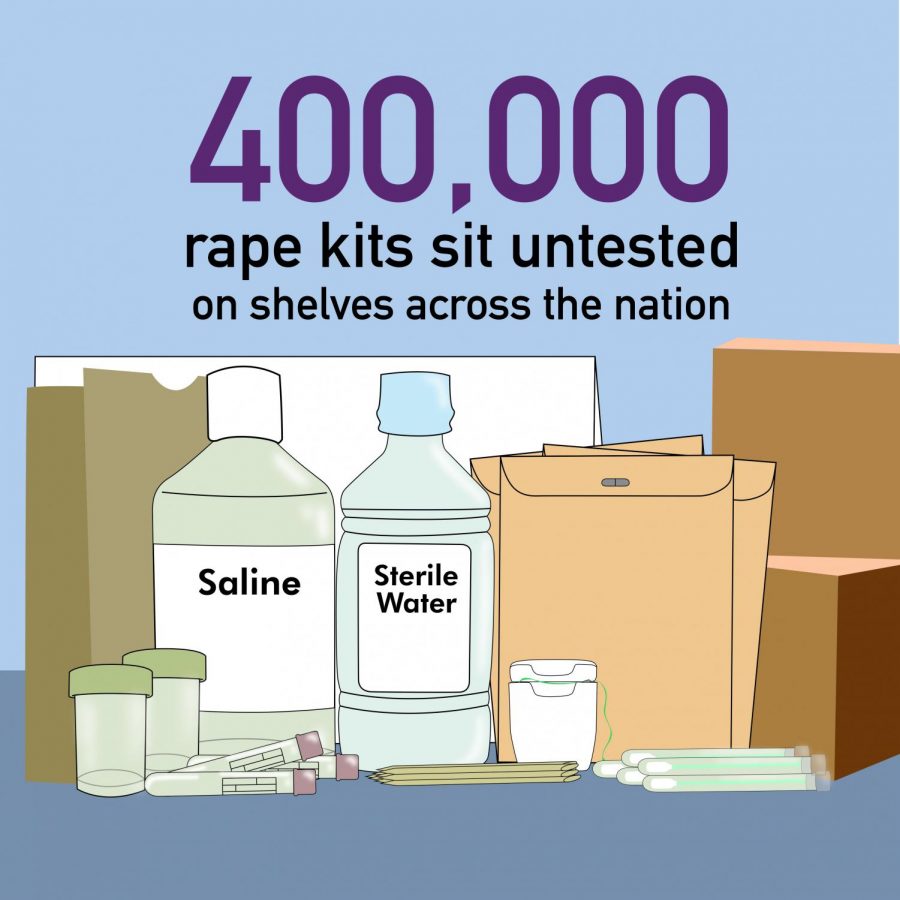Illinois legislator pushes for rape kit electronic tracking system to end backlog
Illinois legislator pushes for rape kit electronic tracking system to end backlog
February 22, 2019
Illinois House representatives are working to pass a bill to establish an electronic rape kit tracking system to tackle a processing backlog, but Sexual Assault Evidence Tracking and Reporting commission members say there is still more to be done.
“It’s not like the [Illinois] State Police have been sitting on their hands, doing nothing,” said Rep. Margo McDermed (D-Frankfort). “Murder [kits] always go first, so if you’re the victim of sexual assault who was not also murdered, you have to wait. … Victims want to make sure their kits are not lost in the system. Justice delayed can be justice denied. You don’t want to wait two to three years.”
In August 2017, former Gov. Bruce Rauner signed a state bill to create the Sexual Assault Evidence Tracking and Reporting Commission with the goal of creating an electronic tracking system for rape kits.
In January, McDermed, chair of Rauner’s commission, proposed House Bill 1440 that would institute the commission’s recommended electronic kit tracking system. The bill is expected to be passed by May 31 and in effect by Jan. 1, 2020, McDermed said. The bill includes no funding because it is not expected to be expensive and will be funded from existing revenue sources. Its anticipated cost is a couple hundred thousand dollars at most, she said.
The bill does not include a mandated turnaround time limit for the kits.
McDermed added that the bill has a 90 percent likelihood of being passed, and she expects Gov. J.B. Pritzker to sign it based on Lt. Gov. Juliana Stratton’s support of the bill in the past.
Ideally, physical evidence from a sexual assault is compiled in rape kits by healthcare providers and is then sent to a local police department where investigators send the evidence to a laboratory for testing and, further down the line, possible use in the prosecution of an assailant.
That is not always the case though, according to Ilse Knecht, director of policy and advocacy at the Joyful Heart Foundation.
he Joyful Heart Foundation advocates for sexual assault and domestic violence survivors and houses End The Backlog, which conducts research and works to identify solutions to eliminate rape kit testing backlog.
Knecht said kits often get stuck at law enforcement agencies due to officers’ bias or inexperience on the job, allowing untested kits to pile up.
“It comes down to a combination of a lack of understanding about sexual assault victims and DNA, coupled with the lack of resources,” Knecht said. “The criminal justice system has not prioritized sexual assault.”
Of the 3,580 kits obtained by the Chicago Police Department, 3,224 have been tested and 356 have not, according to a Jan. 25 Freedom of Information Actrequest response by the CPD to The Chronicle.
Polly Poskin, the executive director of the Illinois Coalition Against Sexual Assault, said the tracking system is not enough.
“Without that assurance of lowered turnaround time, I feel these other recommendations are a false hope about how soon the victim will have resolution to her case,” Poskin said.
In 2016, Illinois enacted a law requiring an annual statewide audit of rape kits. It also enacted a law requiring trauma-informed training for law enforcement and requiring officers to complete written reports of sexual assault complaints and granting victims the right to know the status of their kits. Having forensicsteams test DNA before physical evidence and outsourcing kits has also sped up turnaround time, but it can still be improved, McDermed said.
However, McDermed has concerns with the system’s ability to end backlog entirely.
“There are a lot of hand-offs with these kits,” McDermed said. “It’s not any good if health providers don’t use the system.”
A top priority following the tracking system implementation should be improved resources and employment for the testing of rape kits and, most importantly, reducing the testing turnaround time to a maximum of 90 days, Poskin said.
“Minimizing the significance of the rape kit … is over,“ Poskin said. “Nobody can ignore any longer how important it is, how many people have been so adversely affected and how the priorities of our nation need to shift to value the lives of women, to value the lives of victims … and to see to it that justice is done.”


